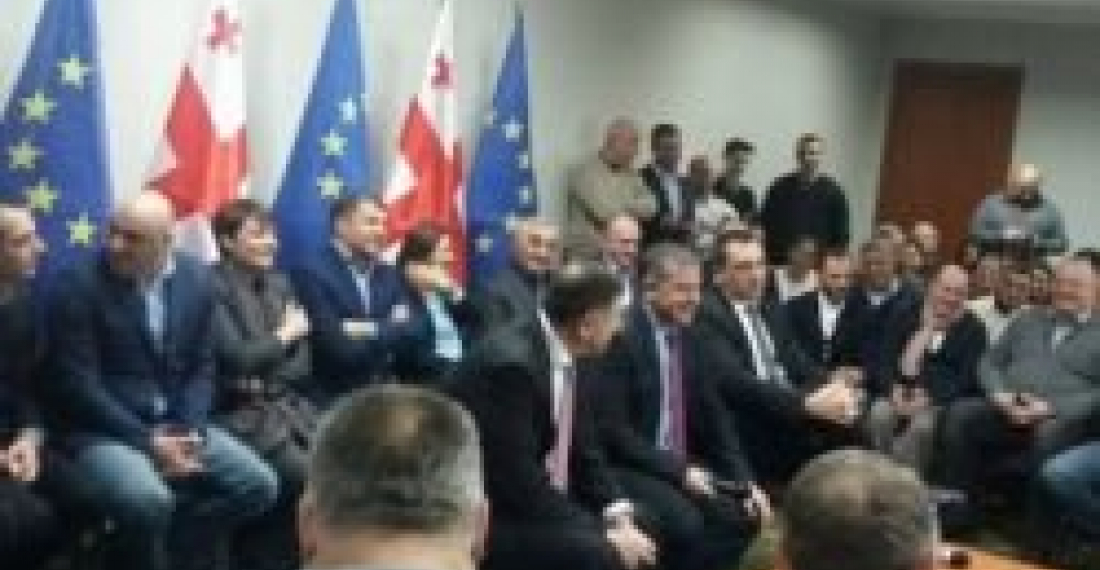Former leaders of the United National Movement, who broke off with that party a few days ago, have launched a new political party called Movement for Freedom - European Georgia. The new party will be the second largest political force in the Georgian Parliament.
The new party held its presentation in Tbilisi on 30 January.
"Today, together with you, together with the society, we are taking one more step on the road, which will lead to the establishment of a new, strong, political center," Davit Bakradze, who spoke first at the presentation, stated, as quoted by civil.ge
Bakradze explained that the European Georgia would be renamed ‘Movement for Freedom-European Georgia,' which, in his words, "will be a real movement and not a [mere] political party, the movement, which will attract tens of thousands, the movement, which will create the sense of development [in the country]."
"Europe is Georgia's final destination. Europe means dignified and decent life for our people. And this is what we offer; to stand together, move forward and build a European country, where every family will live well," Bakradze said.
He also added that the party's major objective will be to "show that there is an alternative in Georgia." "We are not planning to be the second, the third, the fifth or the 25th political force. We are planning to be the only political force, which will manage to form a point of attraction and demonstrate to the population, that we are the political team, which will manage to take Georgia forward using its knowledge, professionalism, intellect, energy and enthusiasm."
Bakradze also noted that the new movement will participate in October 2017 Municipal Elections, where it will obtain "serious result." "We will travel to all districts, we will go everywhere, reach out to people and show that municipal elections have enormous significance," Bakradze noted.
He also announced that the new political movement will have a party convention, tentatively scheduled for April.
Gigi Ugulava, who will serve as the party's interim general secretary until the convention, stated that the party's objective will be to "peacefully change" the government.
"Our movement is named as the Movement for Freedom, because for every Georgian, for every Georgian citizen, the word "freedom" is always the most valuable," Ugulava said at the meeting.
Giga Bokeria, who also spoke at the presentation stated that the new movement's objective is to start changing "Ivanishvili's regime" through municipal elections and then, "begin working for this country, with a strong team, the team which is constrained by constitution and is accountable before the people". according to civil.ge
Commonspace.eu political editor said that this is the end of one important chapter of Georgian politics and the start of another. The creation of the new party makes what remains of the UNM a marginalised political force, still with some grass-root support, but without a nation-wide popular appeal. The new political party however will still have to face the test of contesting elections in its new incarnation. Its leaders are well known in Georgia, and many of them have an appeal, especially amongst the electorate in Tbilisi, - an appeal which they could not harness when they were part of the UNM identity. The speeches at the presentation ceremony indicate that the leaders of the new party know very well they will have to walk on a fine line between opposing vigorously the current government and remaining within the political and constitutional framework. The last elections have shown that Georgians are in no mood for adventurism. On the other hand many Georgians want to see a robust opposition holding the government to account. This the new party has promised to do.
source: commonspace.eu with civil.ge
photo: Leaders of the new Freedom Movement - European Georgia at the launch of their party in Tbilisi on 30 January 2017. (Picture courtesy of IPN - Interpress news)







